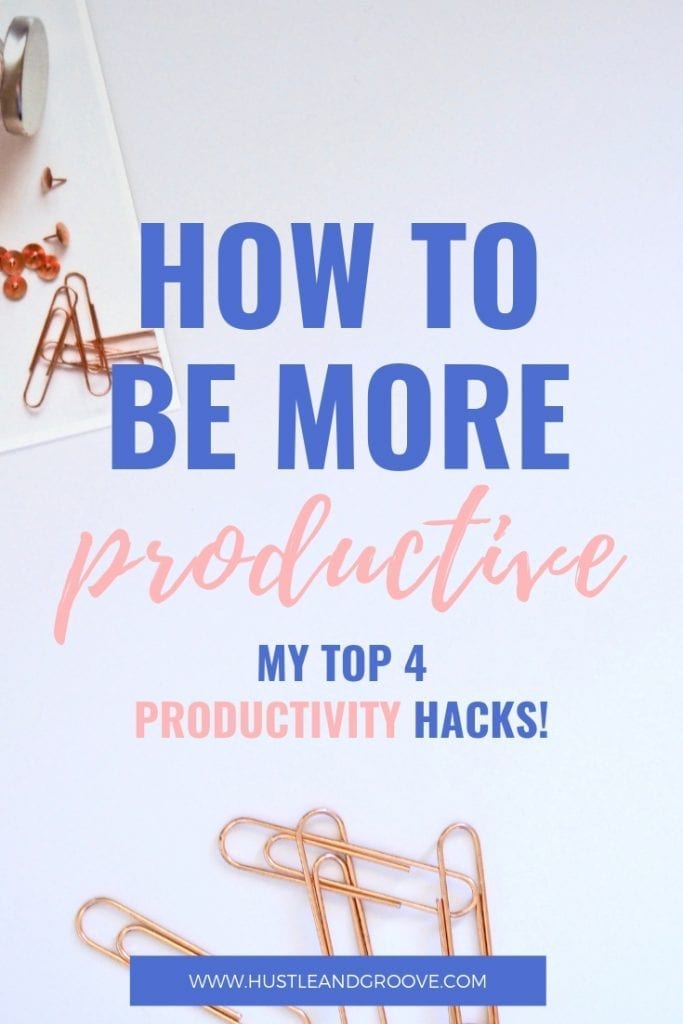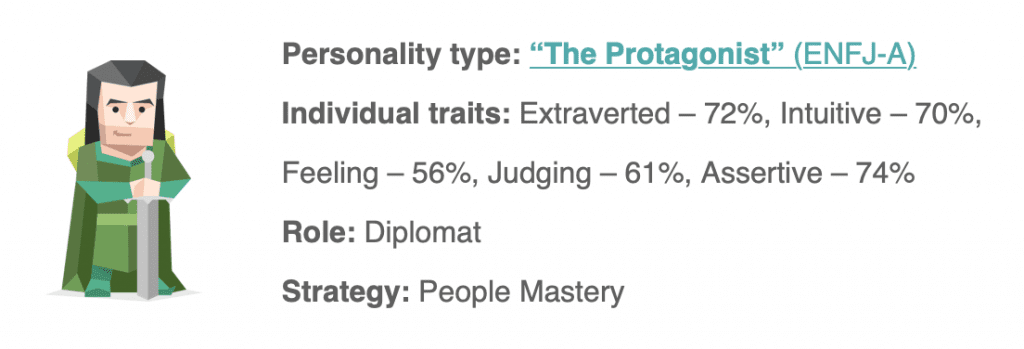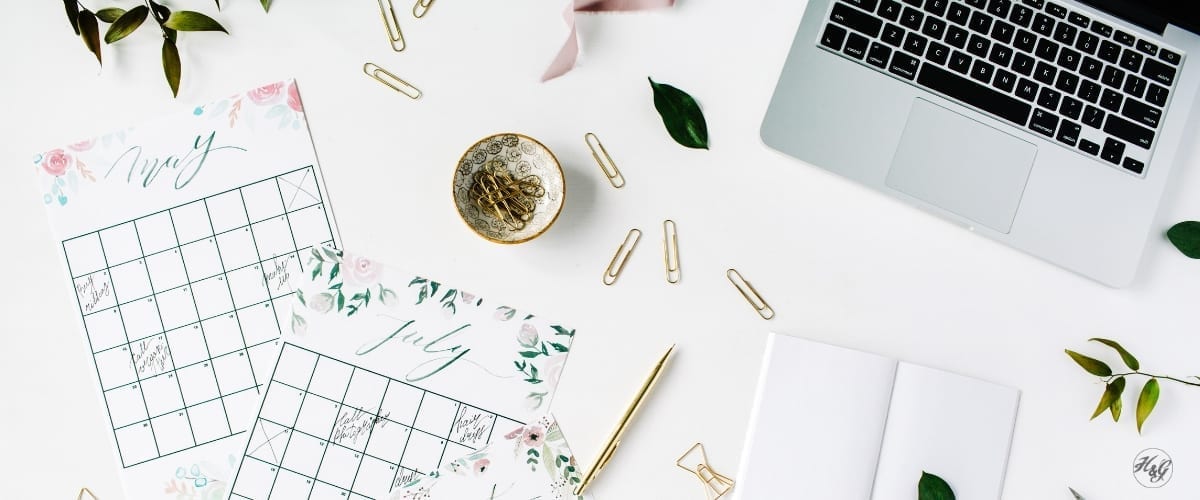You’ve been asking yourself the question, how can I be more productive? What are the things that I can actually do that are going to make a difference?
How to be productive, how do you actually do that?
Well, before we jump into this, I want to make it really clear that productivity does depend on you and your personality. If you’re not really sure what your personality is or what your tendencies are, there are a couple of resources that I’m going to link to below that you should definitely go and check out.
Table of Contents
Identify Your Tendency
The first resource is a book called The Four Tendencies by Gretchen Rubin. She talks about the four different tendencies we all fall into which are Obliger, Questioner, Upholder, and Rebel.
Now, basically, you walk you through a quiz and answer questions that dig deeper into your tendencies… your defaults. Then it gives you the rundown on your tendency, like where are your defaults for dealing with external expectations, or what are the things you get frustrated with. It helps you become aware of your tendencies when dealing with inner and outer expectations. Once you know those tendencies, you can take specific action to hack any deficiencies.
For example, I am an Upholder, which means it’s extremely easy for me to be productive because I have self-motivation and that’s something inherent within me. I can balance both internal and external expectations without sacrificing one for the other.
It’s not that I’m special or that I do anything special to be this way. It’s just that when I make a decision, I do it and follow through. That’s just because it’s in my personality.
But if you are an Obliger, you have the tendency to meet external expectations easily but not your internal ones. Recognizing this can help you understand why you haven’t launched your side hustle despite having good intentions or why you’re not as productive as you’d like to be. Obligers need external accountability to hack into getting more productive around personal things.
Identify Your Personality
Then, once you’ve identified your tendency, you can dig in deeper by taking the Myers-Briggs Type Indicator, the second resource I referred to. It gives you a personality score based on how you perceive the world and make decisions.
You will clarify whether you lean towards:
- Introversion or extraversion
- Intuition or sensing
- Thinking or feeling
- Perception or judging
I would go through and do that and found out what yours is.
Personally, I am an ENFJ-A.
 I love quizzes and the more you can learn about yourself the more easily you can accomplish your goals in life.
I love quizzes and the more you can learn about yourself the more easily you can accomplish your goals in life.
If you want to check out even more options go ahead and do your Enneagram as well.
I am a number seven on the Enneagram. It all ties in with someone who is naturally productive and motivated to do the things that I set my mind to.
Sevens are extroverted, optimistic, and spontaneous. Those three traits make being a coach and running an online business very easy for me. I can naturally dodge and weave problems as they arise while keeping a smile on my face!
You can take the Enneagram test here: https://assessment.yourenneagramcoach.com/.
Once you’ve got your personality figured out, then there are things you can do to help yourself be more productive. Once you understand where your strengths and weaknesses are then you can tailor the following productivity tips to suit your needs.
How to Be More Productive: Four Productivity Hacks
Hack #1: Daily Top 2 Priorities
My number one biggest tip to help you become more productive is to only focus on one to two things in any given day.
Now, that doesn’t mean that I’m not doing more than one or two things in a day. It just means that my number one and number two priorities are the things that I know I want, and need, to get done that day.
I make sure that those two things are attacked first thing in the morning. They’re the first things I do.
Before I check email and before I do any client work, I look at what my priorities are and I do those two things. Focusing on one or two things per day allows me to make progress. It allows me to move forward in the priorities and action steps that I’m working towards. And by the way, I identify those priorities from within my 90-Day Plan and my evening routine.
Focus on one or two things a day. Make sure they’re the first things that you do when you get up in the morning. That sets you up for being more productive at the start of your day.
Hack #2: Batching
Number two is about batching tasks. Now, I have talked about this a number of different times but it bears repeating, particularly when it comes to productivity.
If you don’t want to waste time or lose momentum, I would recommend batching your tasks. What I mean by that is finding all the different tasks and to-do items that are similar. That way you don’t have to switch out of a program to start a new task, you don’t have to start a new program, and/or you don’t have to move into a different area to change tasks.
To optimize batching, similar tasks basically need to be done using the same program, in the same location.
For example, I am video batching today so all the video content for my business is being done today. Any videos that I need to record, whether it’s for my YouTube channel, my membership site, or for courses, there is a specific day of the month that I completely dedicate to recording videos.
I’ve got my makeup and hair done so I want to make sure that everything is set up and I just knock them all out in one go. Staggering them out over the month would be an example of context switching and not very productive.
It takes a lot of effort to set everything up for videos so why not just do it all in one day by batching the tasks.
Hack #3: Focused Time Blocks
On top of batching, I’m also a huge fan of focused time blocks. That’s where I set aside a block of time to focus on doing one thing. Time focusing and batching work really well together.
For example, I might have four x two-hour time blocks throughout a day where I’m focusing on one task. I break my day up into those two-hour blocks. At the end of a two-hour block, I have a break or do something else.
If I know something is going to take longer than one two-hour time block, then I can plan that out. It allows me to also plan things because I can easily say, “Well, this is gonna take this long,” and that fits into a focused time block.
Time blocking 101
Time blocking is super easy to do.
First, you just have to figure out what your ideal time blocks are. They could be as small as 30 minutes. But it’s about focused work blocks, not just blocking off time in your calendar. Then you actually assign a task or group of tasks into that time block to make it focused.
Ideally, you wouldn’t have any of the programs that you’re not using open on your computer. Whatever the work task is that you’re doing, you should only be focusing on that.
I often turn off the internet if I don’t need it during these time blocks because that temporarily stops email notifications, social media stuff, and all of those things. Those impact your attention span. Anything that’s going to try and distract you, you want to avoid. You can either simply disconnect the internet for periods of time, or you can use a Chrome app like StayFocused.
Hack #4: Schedule Down Time
Then, the final piece for how to be more productive is scheduling downtime.
I know that that sounds completely counterintuitive to being more productive, but if you don’t take breaks your brain is going to fry. Remember how I was talking about those focused two-hour time blocks above? In amongst those two hours, I will have a break.
At the end of the two-hour time block, I tend to take half an hour to an hour off where I’ll just read, enjoy a cup of Chai, or get some exercise. Anything that allows my brain to cool off for a bit.
Whatever that looks like, I make sure that it’s scheduled in so I get that break.
Quite often, particularly when you work for yourself, you can just work, work, work, work, work, all the way through the day and have no breaks. That is actually not conducive to good productivity. You need breaks. You need to refresh to be able to come back and be more productive.
Action Step
If you’re wondering what your action step is, it is simply to do two things:
- figure out your personality and your tendency
- then modify what I’ve just shared with you to suit your personality and your tendency.
If you are an Obliger, for example, which is what 80% of the population is when it comes to Gretchen Rubin’s four tendencies, you will need external motivation to motivate you to do these things.
You need to build in accountability. That means probably having a business support person or a business peer that you can check in with daily and say, “Hey, this is what I’m planning to schedule for my day. Let’s check back in and make sure that I’ve done the tasks that I’ve set out to do.”
It could be in the form of a supportive group or someone you partner with to hold each other accountable, like an accountability buddy or a coach. (Stay tuned for something I’m working on that’s gonna help with this…)
That’s the type of thing that you would need to add into your productivity plan to make sure you stay on track.
Let me know in the comments below what you learn about your personality and if you try out any of these hacks!
